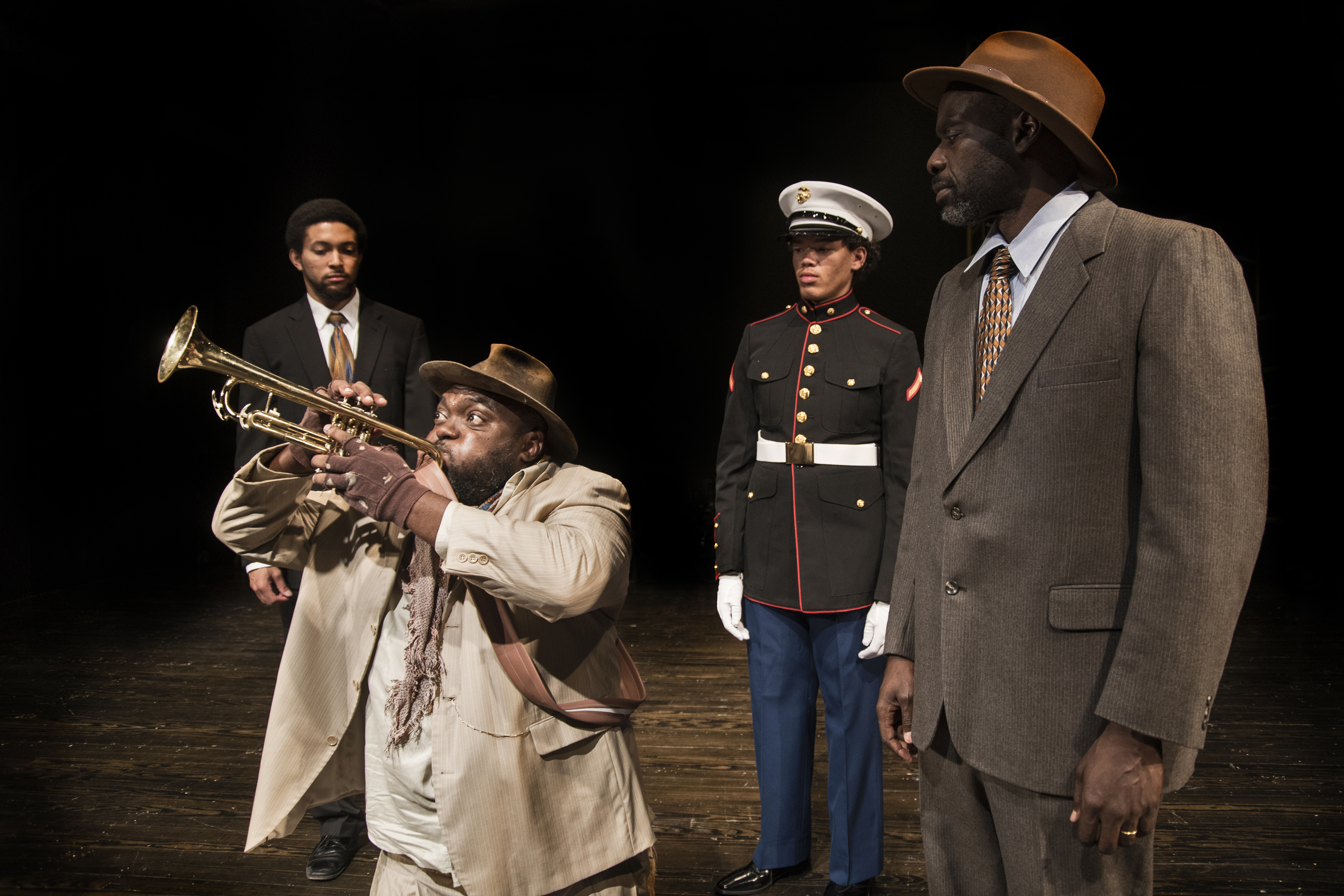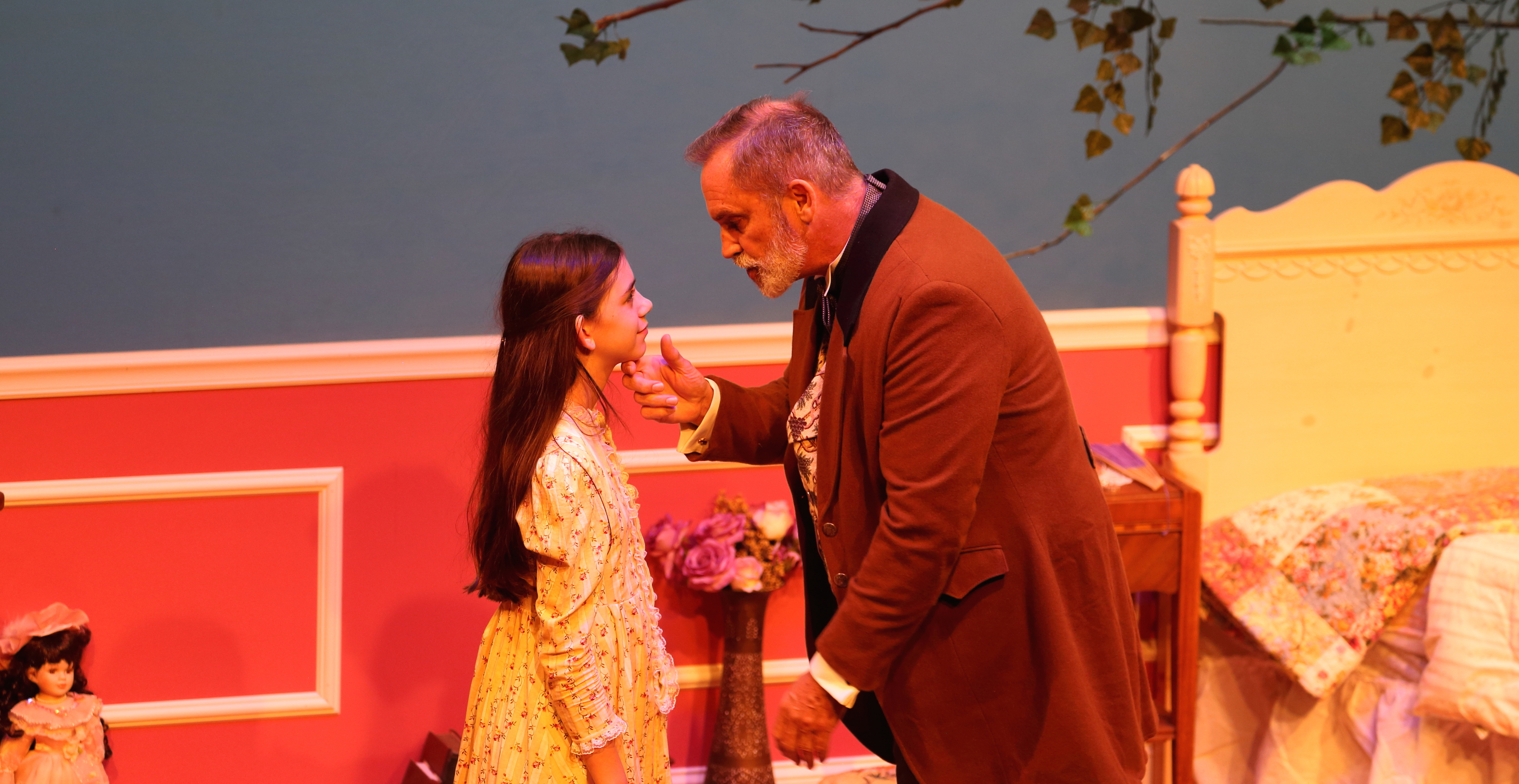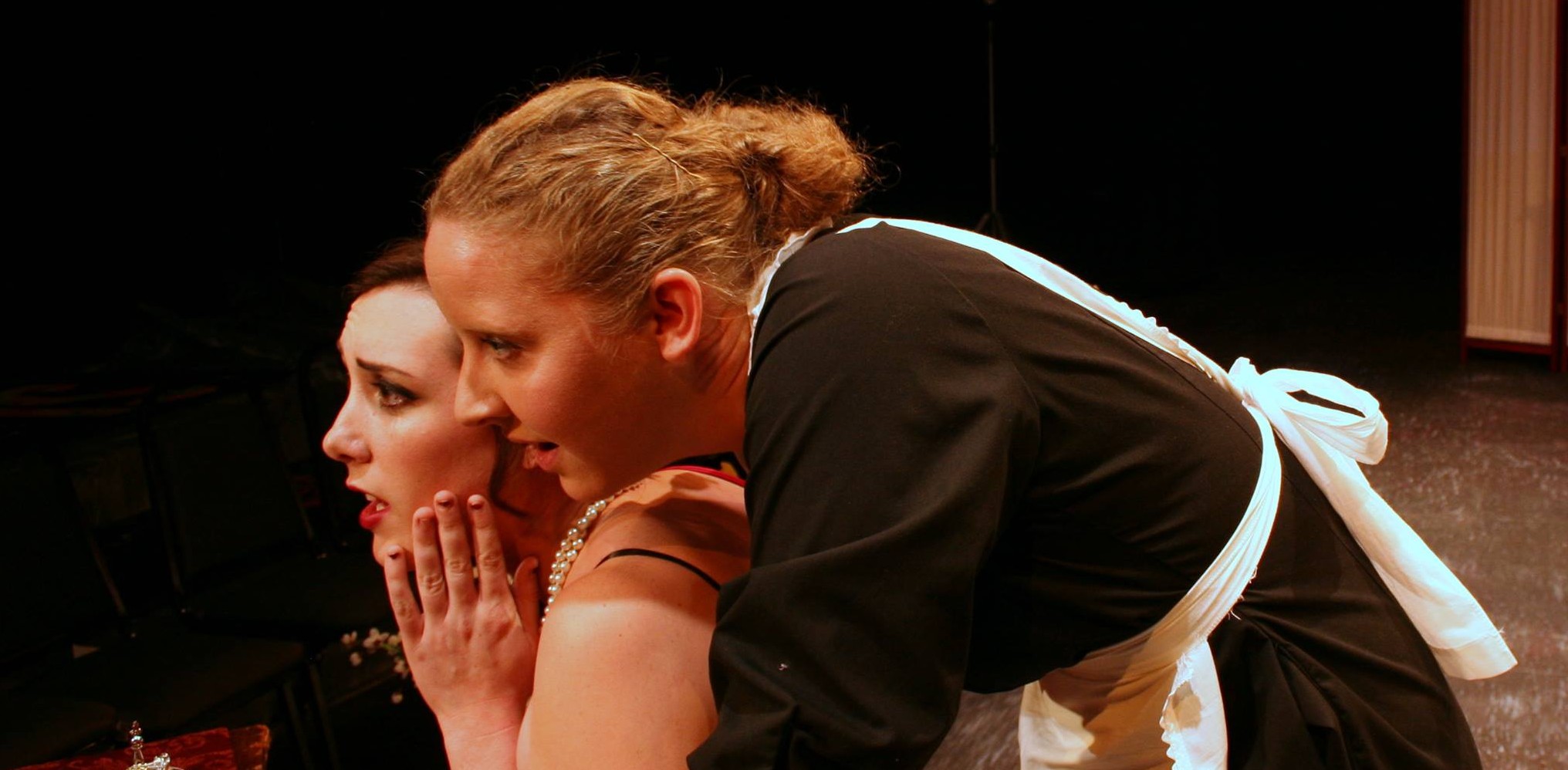Fences
By August Wilson
Directed by Baron Kelly
Review by Keith Waits
Entire contents are copyright © 2016 Keith Waits. All rights reserved.
James Stringer Jr., Joe Monroe II, Zach Paul, & Keith McGill in Fences. Photo courtesy U of L Theatre Arts.
Fences is a play by American playwright August Wilson. Originally produced in 1983, it is one of the earliest of Wilson’s ten-part “Pittsburgh Cycle”, although it falls sixth in the chronological sequence. The play won the 1987 Pulitzer Prize for Drama and the 1987 Tony Award for Best Play.
All of Wilson’s plays are concerned with themes of African American history and the shift of black Americans in the culture over time, but Fences also connect to a broader perspective on the American experience by tying in to themes commonly placed in mid-Twentieth Century drama: the conflict between fathers and sons and the developing challenge to the patriarchal power structure.
In a whirlwind of introduction, we meet Troy Maxson (Tyler Madden), a middle-aged trash collector and former star in the Negro Baseball Leagues, his best friend, Jim Bong (Keith McGill), his wife, Rose (Paula O Lockhart), their teenage son Cory (Zach Paul) and grown son from a previous marriage, Lyons (James Stringer Jr.). Troy’s relationship with both sons is strained, but things are good with Rose and Bono, and he also looks out for mentally impaired his brother, Gabriel (Joe Monroe II).
The long opening stretch generously establishes character and setting, as well as a particular tone that supports Troy’s specific contradictions, flaws that will drive the story into moral complexity. He loves Rose unconditionally but is unyielding in his demands on Cory, which point to revelations about his behavior in the second act.
Fences is a simpler narrative than some of the other “Pittsburgh” plays, and at the time it was first produced, most of the cycle was yet to come, and it does stand on its own as a superior example of the type of family play every American playwright seems to have taken on at some point. Wilson well understands the changes in society taking place after the end of World War II, even if his characters do not. Troy is a classic male figure in American drama: a man confident in his worldview who nevertheless fails repeatedly in his obligations to the most important people in his life. The details are specific to the African American experience but also connect in to a more universal context that dismisses any marginalization of that experience as “minority.”
Director Baron Kelly’s production may not be quite as fine as his very strong staging of Wilson’s The Piano Lesson last season, but it holds up very well. Kevin Gawley’s sets and lighting design do a good job of setting time and place, and Shanna Goldentul’ s costumes serve both character and story effectively.
Tyler Madden’s Troy is his MFA thesis role, and he shows greater discipline than his previous work in The Piano Lesson. He still has the fiery drive and sense of integrity in the character, and he brings great flavor to Troy. Madden is half the age of the man he plays, which is a challenge, but he suggests the weariness and desperation of Troy without, mercifully, the need for pronounced make-up effects.
Paula O Lockhart’s Rose is also a thesis performance, and she delivers with a flair for underplaying that contrasts well with Madden’s work and her own sense of inviolable integrity. Keith McGill matches her with his own gift for understatement, placing Bono’s actions with an instinct for subtlety. James Stringer Jr. is very good as Lyons, the slick older son, but Zach Paul never seems at home in Cory’s skin, and the awkwardness ill serves a supposedly gifted athlete. In a small but spotlighted role late in the play, young Adrianna Anderson almost steals the show, a precocious child with an unexpectedly adult timbre to her voice and dry delivery of her dialogue.
Joe Monroe II walks a fine line with his Gabriel. The name is apt, as Monroe pushes the boundaries of caricature in order to lead the impaired and innocent brother to an unusual introduction of the supernatural in the climactic moments. It is here that Wilson reminds us that, at least at certain times in our past, the mentally ill were thought to be, “touched by God,” providing a powerful moment that evokes the charismatic tradition in Protestantism to close his story.
Fences
Wednesday September 21, 8pm
Thursday September 22, 8pm
Friday September 23, 8pm
Saturday September 24, 8pm
Saturday, September 24, 3pm
Sunday September 25, 8pm
Tickets are $8 for UofL students, $12 for other students and alumni, faculty, staff and seniors and $15 for general admission.
University of Louisville Dept of Theater Arts
African American Theatre Program
Thrust Theater
2314 South Floyd Street
Louisville, KY 40292
louisville.edu/theatrearts
Keith Waits is a native of Louisville who works at Louisville Visual Art during the days, including being the host of PUBLIC on WXOX-FM 97.1/ ARTxFM.com, but spends most of his evenings indulging his taste for theatre, music and visual arts. His work has appeared in Pure Uncut Candy, TheatreLouisville, and Louisville Mojo. He is now Managing Editor for Arts-Louisville.com.





